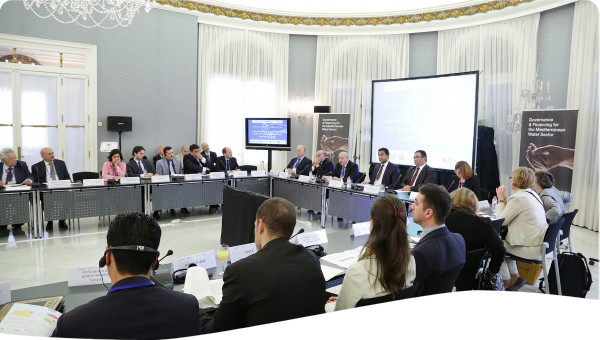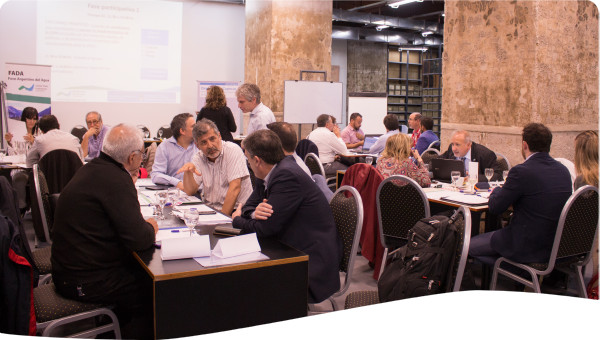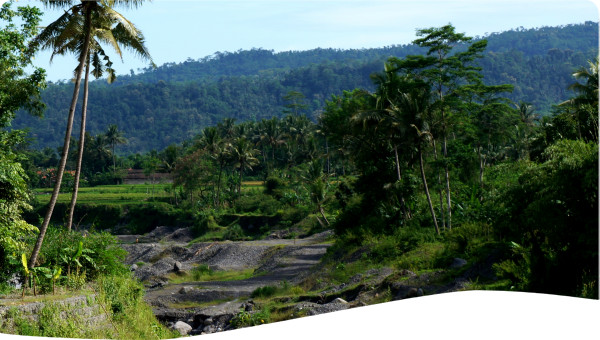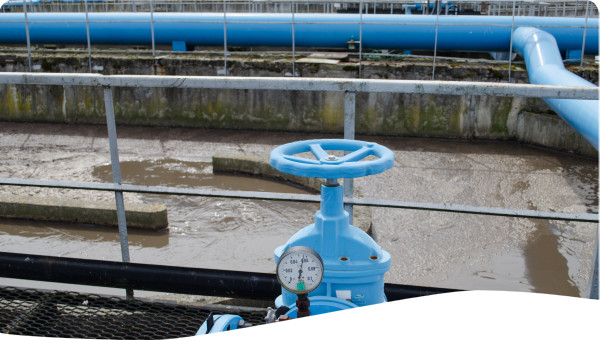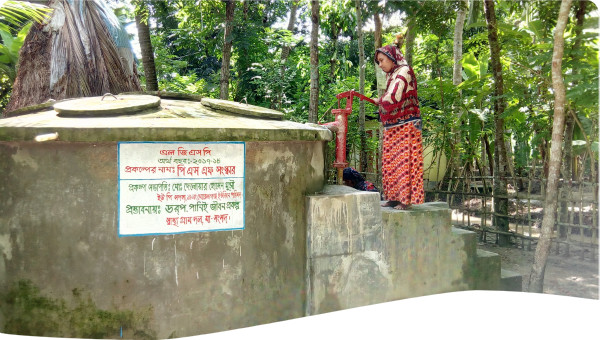Farmers in the Volta river basin generally rely on rain-fed agriculture. Insufficient or irregular rainfall frequently puts farmers at risk of losing their crops. The Challenge Program on Water and Food (CPWF) set out to find ways to strengthen the capacity of the farmers, communities, and other stakeholders in the basin. Experiences show that stakeholders will only participate in innovation platform meetings when they see the value of doing so.
In the Volta basin, most people live in rural areas, and more than two thirds work in agriculture. The farmers in the Volta river basin, some of the poorest in the world, generally rely on rain-fed agriculture. However, insufficient or irregular rainfall frequently puts farmers at risk of losing their crops. In addition, climate change is making already variable rainfall less reliable. The risk of losing crops makes farmers reluctant to invest in agriculture and water management. Farmers must have access to a reliable water supply to sustain their livelihoods.
Due to the irregular rainfall, there are more than 1,700 small reservoirs scattered across Burkina Faso and northern Ghana. Farmers use the reservoirs to help better manage the periods of drought and floods, trying to ensure that water is more consistently available for their crops and animals throughout the year. Initially, many reservoirs were built as watering holes for cattle, but now they are serving multiple purposes, providing opportunities for farmers to mitigate the risks of variable rainfall. However, external drivers of change such as population growth and climate change are putting more pressure on the limited rainwater resources. Improved rainwater management is a necessity for smallholder farmers to intensify their production, i.e., use less water to grow more crops, rear more cattle, or both.
In line with the problems highlighted above, the Challenge Program on Water and Food (CPWF) set out to find ways to strengthen the capacity of the famers, communities, and other stakeholders in the basin by strengthening integrated management of rainwater and small reservoirs, so they can be used equitably and for multiple purposes. The CPWF program was launched in Volta basin in 2003. Between 2003 - 2008, twelve independent projects conducted research on a wide range of water and food-related issues. Four key areas were identified and put into focus.
- A tool targeting Agricultural Water Management Interventions was developed. The tool helped decision makers to identify the most successful water management interventions regarding soil water conservation, small-scale irrigation, and small reservoirs for further scaling up.
- CPWF proposed innovation platforms to promote practices that improve agricultural productivity. The innovation platforms are a form of public-private partnership which are also multi-actor systems set up to allow stakeholders to work together to identify shared challenges and solutions.
- Through stakeholder surveys, challenges related to management of the reservoirs were identified, i.e., proliferation of macrophytes (a type of aquatic weed) in Boura and siltation in Binaba. The identified challenges helped to direct better methods for management options.
- Understanding Water Management Options in West Africa. A multi-level engagement and negotiation methodologies was developed that enabled stakeholders to identify their different understandings of what integrated water resources management is, in addition to the structures responsible for its implementation.
The CPWF has used different research disciplines, partnered with local, national, and international organizations, and operated at the household, community, watershed, and basin levels. When designing its second round of projects, CPWF decided to limit its focus to one theme and one geographical area. Thus, between 2010 and 2013, CPWF explored the institutional and technical aspects of rainwater management as well as small reservoir development and maintenance in Burkina Faso and northern Ghana. The research has been linked with similar CPWF research projects in the Nile and Limpopo river basins.
1) Targeting Agricultural Water Management Interventions: Change in Knowledge
- Researchers and students have become better at conducting participatory geographic information systems research;
- Students improved fieldwork for their theses, presented and engaged in regional and international fora;
- Farmers have better understanding of participatory geographic information systems and use of Google Earth;
- Expert stakeholders have learned how to use the TAGMI tool and are finding it relevant, useful, and timely.
2) Using Innovation Platforms to Strengthen Value Chains: Change in Knowledge and Practice
- Farmers adopted new practices including: regular ridges that trap rainwater and prevent erosion; a new technique for sowing maize in lines with one seed per hole; ventilating livestock pens; building larger pens and cleaning pens more frequently; livestock vaccinations; mixing manure with inorganic fertilizer; using crop residue as fodder; composting; intercropping maize and soybeans; water pits to collect water for livestock; recording expenditures and budgeting; improved soil and water management.
- Farmers know more about market options, particularly which farming inputs (e.g. seeds) are available and when and where to sell agricultural products.
- The Burkinabese Fédération Nationale des Groupements Naam (FNGN, the national farmers’ association in Burkina Faso and local implementing partner of CPWF) has decided to include innovation platforms as a development tool in their coming five-year strategic plan.
3) Options for Sustainable and Efficient Use of Small Reservoirs: Change in Knowledge and Skills
- Local communities, researchers, and students have increased their understanding of the main processes that control the productivity of small reservoirs and the complexity of their interactions.
- Researchers and students have increased their flexibility and become better at using multi-disciplinary approaches.
- Recurrent feedback and interactions between researchers and local stakeholders have enhanced stakeholders’ confidence and interest in scientific activities. Hence, scientific results and recommendations will be considered for the preparation of the next Plan Communal de Développement in Boura.
4) Understanding Water Management Options in West Africa: Change in Knowledge, Attitude, Practice
- Members of the executive body of the CLE in Bougouriba convened on their own initiative and met on two occasions. The committee requested a CPWF research team to help them in drafting a management plan; a change in mindset of a previously dysfunctional water committee.
- In Ghana, the White Volta Basin Board realized it needed to reconstitute and begin its activities. An ongoing discussion about whether to create mini-basin boards to tackle issues at the very local level was informed.
It is reasonable to expect that stakeholders will only adopt improved agricultural practices if a new practice is to their own benefit. For example, stakeholders will only participate in innovation platform meetings when they see the value of doing so.
Initiatives such as innovation platforms provide space for a wide range of stakeholders to exchange knowledge, learn, and develop joint solutions to solve agricultural development challenges.
Successful innovation can only happen when stakeholders have a sustained interest in working together to acquire new knowledge and find solutions; the research community cannot bring about innovation on its own.
Research for development takes time, and resources and must be supported for long enough before innovation can emerge successful and can be evaluated.
For IWRM to be successful, it requires interactions between more actors from more levels of decision-making than previously considered. The companion modeling approach is a good framework to highlight interactions between actors and allows a collective decision-making process to unfold.
 Case studies
Case studies